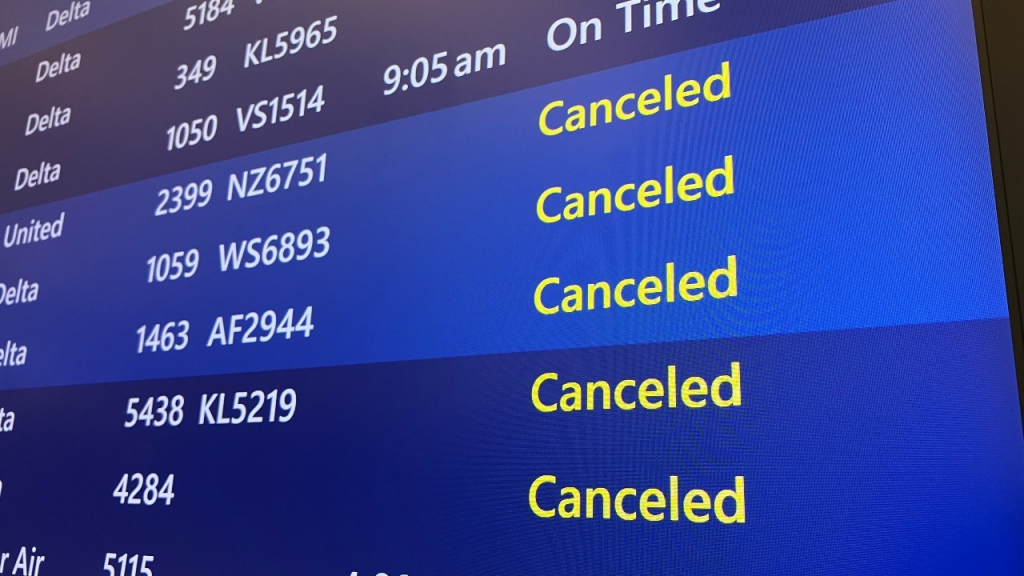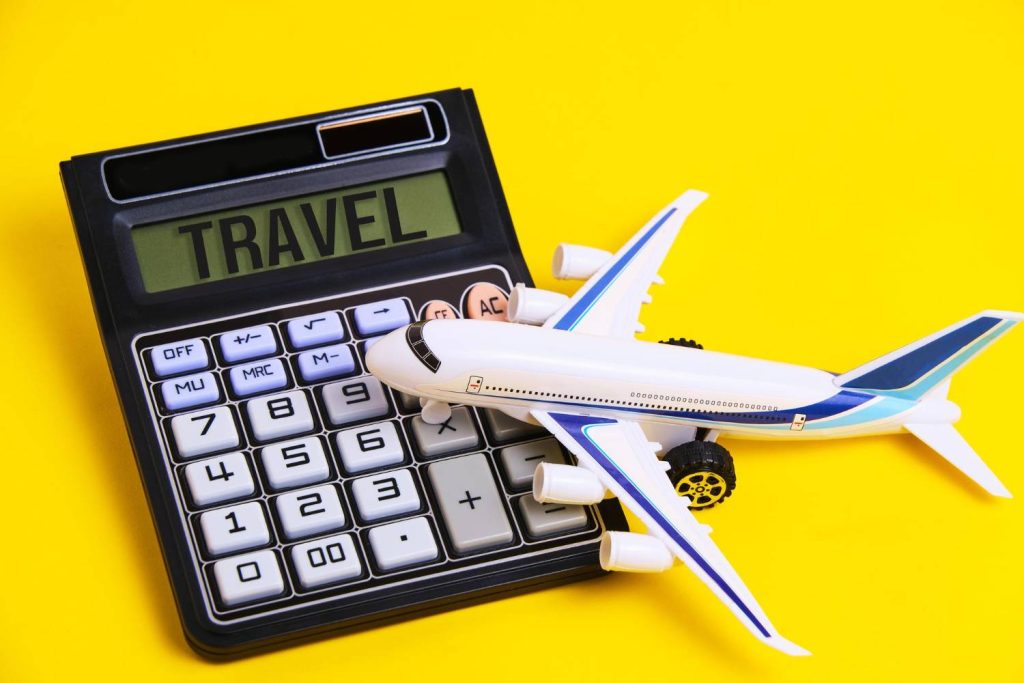United Airlines flight cancellations have become a pressing concern for passengers traveling through Newark Liberty International Airport, with the airline announcing a reduction of 35 roundtrip flights daily. CEO Scott Kirby attributed these disruptions to significant staffing shortages among air traffic controllers and ongoing technological issues within the Federal Aviation Administration (FAA). This reduction represents about 10% of United’s daily operations at its Newark hub, further complicating an already congested travel scenario. As delays continue to mount, over 300 flights experienced delays, adding to the staggering count of more than 1,400 disruptions reported earlier this week. The airline’s decision underscores the ongoing air traffic control problems that have plagued Newark, casting a shadow over airline operations changes aimed at improving efficiency and reliability for travelers.
The recent flight interruptions at United Airlines illustrate severe challenges facing travelers at Newark Liberty International Airport. With a notable rise in cancellations and delays, passengers are increasingly feeling the impact of decreased airline reliability. The core issues stem from critical shortages in air traffic management personnel, as well as emerging FAA staffing challenges that continue to hinder seamless operations. Consequently, substantial adjustments to flight schedules have become necessary, igniting discussion about the need for upgraded technology and systemic changes. As the airline grapples with these overarching problems, the focus is shifting towards finding solutions that balance safety with the growing demand for air travel.
United Airlines Flight Cancellations: What to Expect
This week, United Airlines announced that it will be canceling 35 roundtrip flights per day from Newark Liberty International Airport due to significant operational challenges. CEO Scott Kirby revealed that these cancellations are a direct response to staffing shortages among air traffic controllers and recurring technological issues at the Federal Aviation Administration (FAA). Passengers traveling through Newark should brace themselves for more disruptions as this reduction in service amounts to about 10% of United’s daily flights from this hub.
As of the recent updates, Newark has seen more than 300 flights delayed, contributing to a staggering total of over 1,400 delays and cancellations earlier this week. These operational changes aim to maintain a level of service that prioritizes customer safety amid ongoing air traffic control problems. Passengers are advised to stay in regular contact with the airline for possible rebooking options and updates related to their travel plans as United navigates these challenging circumstances.
Understanding Newark Airport Delays and Their Causes
Newark Liberty International Airport has been experiencing significant delays primarily due to FAA staffing issues and the resulting air traffic control problems. These delays have forced United Airlines to take proactive measures, which include canceling flights to ensure that remaining operations are manageable. A staggering 20% of the air traffic controller workforce recently left their positions, and this chronic understaffing has severely impacted the airport’s ability to function smoothly.
The FAA has confirmed that the ongoing staffing challenges, amplified by technological failures, have created a backlog of delays that cannot be immediately resolved. Secretary of Transportation Sean Duffy has acknowledged the unacceptable state of air traffic control infrastructure, calling for a complete overhaul of the system. As these factors continue to hinder the efficiency of Newark airport operations, affected passengers should prepare for potential flight disruptions in the near future.
The Role of FAA Staffing Issues in Flight Delays
The persistent staffing shortages among air traffic controllers have a profound impact on flight operations across the nation, and Newark is experiencing the brunt of this. The FAA’s restructuring efforts, which involved relocating controllers to other facilities, have resulted in a staffing deficit that hampers the airport’s ability to manage its flight schedule effectively. CEO Scott Kirby emphasized the importance of addressing these issues to secure a more reliable aviation system in the future.
Furthermore, the FAA’s technological problems only compound these staffing crises, making it nearly impossible for air traffic to be managed efficiently. In light of these challenges, multiple airlines, including United, are calling for stricter capacity controls and flight restrictions to alleviate excessive congestion. As a result, travelers should remain informed about possible changes to flight schedules in response to these ongoing staffing issues.
Air Traffic Control Problems and Their Impact on Airline Operations
Air traffic control problems significantly affect airline operations, particularly in busy hubs like Newark. The combination of insufficient staffing levels and technological setbacks creates a chaotic environment that often leads to lengthy delays and flight cancellations. United Airlines, for instance, has had to scale back its Newark operations repeatedly, a decision that underscores the systemic issues plaguing air traffic management.
As travelers continue to face disruptions, airlines are urged to collaborate with the FAA on practical solutions to enhance operational capacity. For now, the focus remains on mitigating the number of affected flights and implementing measures, such as temporary flight cancellations, to maintain overall safety and efficiency in air travel during these trying times.
Possible Solutions to Air Traffic Staffing Shortages
To address the ongoing staffing issues affecting air traffic control, the Transportation Department has proposed new incentives aimed at attracting and retaining qualified air traffic controllers. These strategies are essential not only to alleviate current delays but also to develop a sustainable staffing model for the future. United Airlines is supportive of these efforts, as staffing shortages have been an ongoing challenge contributing to Newark airport’s operational difficulties.
With the addition of more skilled personnel, the hope is to mitigate the likelihood of future flight cancellations and delays. The successful implementation of these incentives could lead to a more stable environment for airlines operating out of congested airports, thus improving overall airline operations and enhancing the travel experience for passengers.
Technological Failures Affecting Airline Operations
The recent technological failures at the FAA have greatly compounded operational issues at Newark Airport, leading to a series of flight cancellations and delays. These failures have not only disrupted the normal flow of air traffic control but have also made it difficult for airlines to coordinate takeoffs and landings effectively. United Airlines President Scott Kirby highlighted that these technical problems disrupt operations far beyond Newark, indicating a more extensive underlying issue with the FAA’s infrastructure.
As the FAA works to resolve these technological challenges, airlines are finding it increasingly difficult to maintain schedules. United’s decision to cancel flights is a necessary step to avoid further chaos, underscoring the need for significant investments in air traffic control technologies. Until these issues are resolved, passengers should remain vigilant about their travel plans and stay in touch with their airlines for further developments.
Flight Cancellations: United Airlines’ Customer Support Measures
In light of recent disruptions and flight cancellations, United Airlines has announced that it will waive change fees and differences in fares for customers affected by the Newark operations adjustments. This is a crucial move aimed at maintaining customer satisfaction during a time of significant uncertainty. Given the severe delays and cancellations, the airline’s commitment to easing the burden on passengers reflects an understanding of the challenges they face.
Customers are encouraged to reach out to United Airlines for assistance with their travel arrangements, ensuring that they are aware of their rebooking options. The airline’s proactive measures not only highlight its dedication to customer service but also acknowledge the unpredictable nature of air travel during unprecedented operational challenges.
Impacts of Air Traffic Control Problems on Passenger Travel Experiences
Air traffic control problems not only disrupt flight schedules but also significantly impact the overall travel experiences of passengers. Lengthy delays and unexpected flight cancellations create a ripple effect that can lead to missed connections, increased stress, and uncertain travel plans for many. As Newark Airport grapples with these challenges, travelers must remain adaptable and prepared for changes in their itineraries.
Moreover, the emotional toll on passengers experiencing these cancellations can lead to frustration and inconvenience, making it all the more essential for airlines to provide clear and timely communication about any developments. As United Airlines navigates this turbulent period, it is crucial for the company to prioritize transparency and efficient handling of customer concerns to uphold trust and loyalty among its clientele.
Looking Ahead: Future of Air Travel Amid Operational Challenges
The future of air travel remains uncertain as airlines like United grapple with persistent operational challenges stemming from staffing shortages and technological failures. While immediate solutions are being implemented, including capacity controls and temporary flight cancellations, a long-term strategy involving significant investment in air traffic control infrastructure is crucial. The FAA’s planned initiatives aim to enhance staffing and improve systems that have long been in disrepair.
As the travel industry adapts to these evolving circumstances, collaboration among airlines, government agencies, and air traffic control will be vital. For passengers, staying informed about their travel plans and the operational status of their flights will be paramount. The collective effort to improve the air travel experience and address these pressing issues will determine how quickly the industry can recover from this turbulent period.
Frequently Asked Questions
What is causing United Airlines flight cancellations at Newark airport?
The recent United Airlines flight cancellations at Newark airport are primarily due to staffing shortages among air traffic controllers and technological issues within the FAA. CEO Scott Kirby announced that these staffing challenges resulted in the airline canceling 35 roundtrip flights daily to better manage operations and protect customers from lengthy delays.
How many flights has United Airlines canceled due to Newark airport delays?
United Airlines is canceling 35 roundtrip flights per day at Newark Liberty International Airport. This decision is in response to ongoing Newark airport delays exacerbated by staffing shortages and air traffic control problems.
What number of flights were delayed at Newark airport last week?
Over 300 flights were delayed at Newark airport as of Friday afternoon, contributing to more than 1,400 delays and flight cancellations earlier in the week. These disruptions have prompted United Airlines to adjust its Newark operations.
How does FAA staffing issues impact United Airlines flights?
FAA staffing issues are significantly impacting United Airlines flights by causing delays and cancellations at Newark airport. With 20% of air traffic controllers reportedly absent from their jobs, the FAA has indicated that these staffing shortages are unsustainable, leading to flight cancellations and operational changes.
What measures is United Airlines taking to handle Newark airport disruptions?
To address the Newark airport disruptions, United Airlines is scaling back its flight schedule by canceling 35 roundtrip flights a day. The airline is also waiving change fees and fare differences for affected customers to mitigate frustrations caused by the recent flight cancellations.
What are the long-term effects of air traffic control problems on United Airlines?
The long-term effects of air traffic control problems at Newark airport on United Airlines include a consistent pattern of delays and cancellations. These issues, which have been noted for years, force the airline to reduce its scheduled flights, ultimately impacting customer experience and operational efficiency.
What is United Airlines’ plan for Newark airport amidst ongoing cancellations?
United Airlines plans to continue monitoring Newark airport for ongoing cancellations and delays. The airline is advocating for the FAA to implement stricter capacity controls similar to those at other congested airports to better manage Newark’s air traffic and improve service reliability.
How are flight cancellations at Newark airport affecting passengers?
Passengers are significantly affected by flight cancellations at Newark airport, facing lengthy delays and travel disruptions. United Airlines has responded by canceling 35 flights daily and offering waivers on change fees to assist impacted travelers.
Are there solutions being proposed to alleviate Newark airport flight cancellations?
Yes, solutions are being proposed by United Airlines and aviation officials, including instituting stricter flight controls and investing in air traffic control infrastructure. Ongoing discussions aim to address the chronic understaffing of air traffic controllers that leads to frequent Newark airport flight cancellations.
| Key Point | Details |
|---|---|
| Flight Cancellations | United Airlines is canceling 35 roundtrip flights daily from Newark Liberty International Airport. |
| Reason for Disruptions | Disruptions are attributed to staffing shortages among air traffic controllers and FAA technological issues. |
| Impact on Operations | The cancellations represent about 10% of United’s daily operations at Newark. |
| Current Delays | Over 300 flights were delayed on Friday, adding to more than 1,400 delays earlier in the week. |
| Air Traffic Control Situation | 20% of air traffic controllers at Newark ‘walked off the job’ recently due to staff shortages. |
| FAA Response | FAA confirmed staffing challenges were causing delays and advised implementing stricter capacity controls. |
| Historical Context | FAA previously relocated air traffic controllers to Philadelphia to help manage congestion at Newark. |
| Customer Considerations | United Airlines is waiving change fees for customers affected by Newark flight disruptions. |
Summary
United Airlines flight cancellations have significantly impacted travelers this week as the airline announced a reduction of 35 roundtrip flights daily from Newark Liberty International Airport. This drastic change comes in response to staffing shortages and technological failures at the FAA, leading to widespread delays and operational challenges. As the airport continues to face chronic understaffing, it highlights the urgent need for reform within air traffic control systems to improve efficiency and serve customers better.



